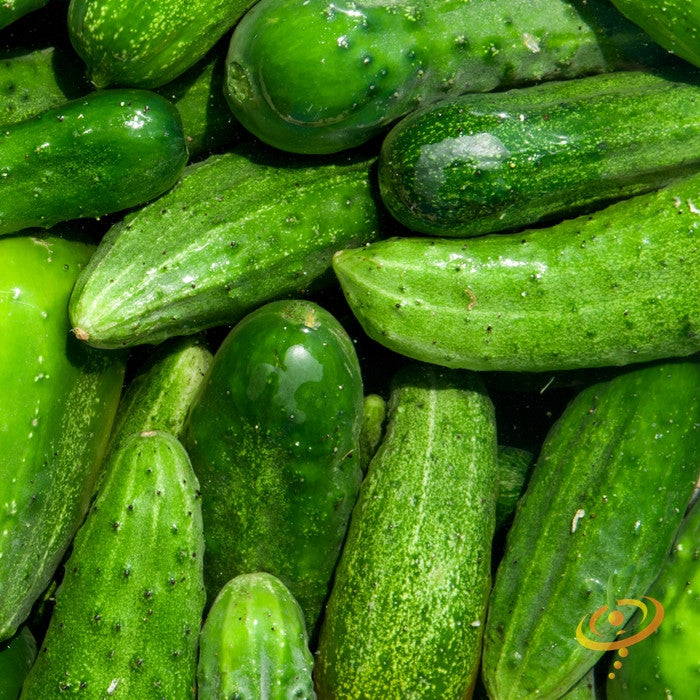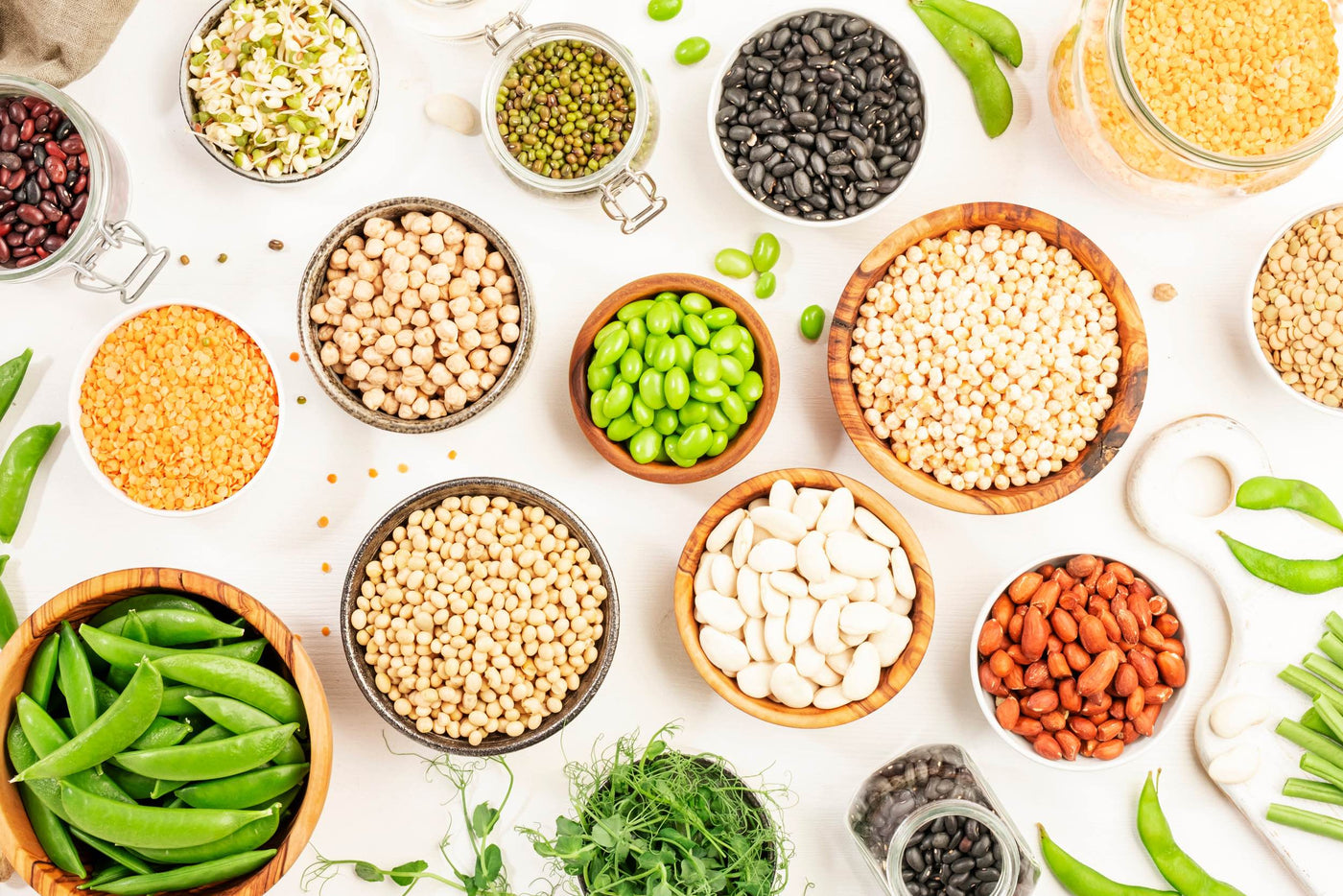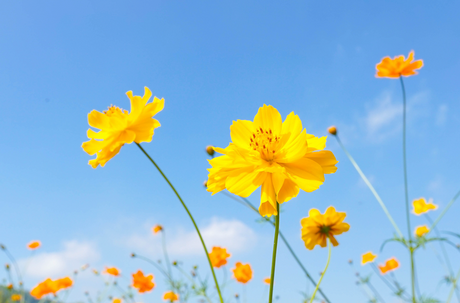Cilantro/Coriander, Slow-Bolt (splits)
From $299 USDUnit price /UnavailableDescription

Cilantro is the most popular leafy aromatic herb with a tangy citrusy-parsley-like flavor, used in Latin and Asian cuisines.
Coriander is the dried seed, whole or powdered, with an earthy, floral flavor used as a spice in Indian cuisine. Grow it just for the seeds or the tiny pinkish flowers, which are quite sweet.
Cilantro prefers cool weather, and this slow-bolt variety will tolerate a bit more heat, putting out more leaves for a longer time before it starts bolting out tasty flowers and Coriander seeds.
Leaves, stems, flowers, seeds, and root of this fast-growing herb are all edible. It also likes shady spots, so a good one to grow indoors.
- Citrusy-parsley-like flavor
- All parts are edible
- Grows 1'-2' tall
- Good for indoor gardens
As a companion plant, it attracts pollinators and beneficial insects, and repels aphids, carrot rust fly, grasshoppers, mosquitoes, potato beetles, and spider mites.As a medicinal herb, Coriander has been used internally to treat anxiety, arthritis, bad breath, colic, constipation, diabetes, diarrhea, flatulence, indigestion, inflammation, insomnia, lack of appetite, nausea, nervousness, pain, stomach cramps, and urinary tract infections (UTIs), and externally to treat rheumatism, headache, joint pain, and tired eyes.
⚠️ Medicinal properties are presented as information only, and are not a recommendation or prescription for use. Consult a medical professional before using any herb medicinally.
Good companion plants: Anise, Asparagus, Basil, Broccoli, Brussels Sprouts, Cabbage, Carrot, Celery, Chervil, Collards, Cumin, Dill, Kale, Kohlrabi, Lemongrass, Lettuce, Mint, Mustard, Oregano, Parsley, Parsnip, Pea, Potato, Rutabaga, Spinach, Squash, Tomato, Turnip, Zucchini
More facts about Cilantro/Coriander:
- This slow-bolting strain is grown primarily for its broad, deep green, celery-like, pungent foliage.
- Used in Oriental and Mexican cuisine.
- Use seed to flavor meats, pickles and baked goods.
- Coriander contains antioxidants. It has also been used as a folk medicine for the relief of anxiety and insomnia. Coriander has also been documented as a traditional treatment for diabetes.
See Cilantro/Coriander Recipes & Growing Tips on our Pinterest Board
Follow SeedsNow.com's board Cilantro on Pinterest. Cucumber - Armenian, Long Green (Metki Serpent Melon)
From $299 USDUnit price /UnavailableDescription
- These Armenian cucumber seeds will produce delicious 30" - 36" long dark green cucumbers
- Bitter-free with excellent flavor
-
Excellent slicer and ideal for salads and many culinary dishes
- Easy to grow
-
Days to Maturity | 65 days
-
Cucumber Seeds | Grow cucumbers where a long, warm growing season, minimum 65 days, can be assured. Plant seeds where there is ample space and vines can sprawl, the simplest way is to plant cucumbers in hills.
Click here for complete Cucumber grow guide
- These Armenian cucumber seeds will produce delicious 30" - 36" long dark green cucumbers
- From $299 USDUnit price /Unavailable
Description

The Ashley cucumber is a popular variety among gardeners, particularly those interested in cultivating high-quality vegetables. This cucumber type is known for its exceptional flavor, crisp texture, and versatility in culinary applications. The Ashley cucumber is classified as a slicing cucumber, making it ideal for fresh consumption in salads, sandwiches, or as a refreshing snack.
One of the defining characteristics of the Ashley cucumber is its growth habit. It is a vigorous, high-yielding plant that can produce an abundance of fruit throughout the growing season. Typically, the Ashley cucumber reaches maturity approximately 55 to 60 days after planting, allowing for a relatively quick turnaround from seed to harvest. This rapid growth cycle is particularly advantageous for gardeners looking to maximize their vegetable output within a limited timeframe.
In terms of physical attributes, the Ashley cucumber is characterized by its dark green skin, which is smooth and free from spines. The fruit typically grows to a length of about 8 to 10 inches, making it a suitable size for slicing. The flesh of the Ashley cucumber is firm and has a mild, sweet flavor profile, which is often preferred by consumers over other cucumber varieties.
From a nutritional standpoint, cucumbers, including the Ashley variety, are low in calories and high in water content, making them an excellent choice for hydration. They also provide essential vitamins and minerals, such as vitamin K, vitamin C, and potassium. Incorporating Ashley cucumbers into a balanced diet can contribute to overall health and wellness.
When cultivating Ashley cucumbers, it is important to consider their growing conditions. This variety thrives in well-drained, fertile soil with a pH level between 6.0 and 6.8. Adequate sunlight is crucial, as Ashley cucumbers require at least 6 to 8 hours of direct sunlight per day for optimal growth. Regular watering is also essential, particularly during dry spells, to ensure consistent moisture levels in the soil.
In terms of pest and disease management, the Ashley cucumber is relatively resilient; however, gardeners should remain vigilant for common cucumber pests such as aphids and cucumber beetles. Implementing integrated pest management strategies, including crop rotation and the use of beneficial insects, can help mitigate potential infestations.
In conclusion, the Ashley cucumber variety is an excellent choice for both novice and experienced gardeners. Its rapid growth, high yield, and superior taste make it a valuable addition to any vegetable garden. By providing the appropriate growing conditions and care, gardeners can enjoy a bountiful harvest of Ashley cucumbers, contributing to a diverse and nutritious diet.
Click here for complete Cucumber grow guide
Follow SeedsNow.com's board Cucumbers on Pinterest - From $299 USDUnit price /Unavailable
Description

- This popular picking variety produces smooth, bright-green, 3" fruits with black spines
- Extremely strong plant
- Grows continually if kept picked
- Excellent cucumber variety for any garden
-
Days to Maturity | 50-55 days
-
Cucumber Seeds | Grow cucumbers where a long, warm growing season, minimum 65 days, can be assured. Plant seeds where there is ample space and vines can sprawl, the simplest way is to plant cucumbers in hills.
Click here for complete Cucumber grow guide
- This popular picking variety produces smooth, bright-green, 3" fruits with black spines
- From $299 USDUnit price /Unavailable
Description

- The Chinese Snake (Curved) cucumber produces fruits that are smooth, dark-green with white spines
- The fruits grow to about 15" to 18" long and curved
- Grows on strong & vigorous vines
-
Days to Maturity | 75 days
-
Cucumber Seeds | Grow cucumbers where a long, warm growing season, minimum 65 days, can be assured. Plant seeds where there is ample space and vines can sprawl, the simplest way is to plant cucumbers in hills.
Click here for complete Cucumber grow guide
- The Chinese Snake (Curved) cucumber produces fruits that are smooth, dark-green with white spines
- From $299 USDUnit price /Unavailable
Description

-
The Ever-bearing cucumber is one of the most popular cucumbers you can grow.
- As its name implies, this cucumber variety continues to grow as its fruits are picked
- Crisp fruit with excellent flavor and crunch
- Vigorous vines loaded with fresh cucumbers all season
- Great for table use, slicing, pickling and/or processing
-
Days to Maturity | 60 days
-
Cucumber Seeds | Grow cucumbers where a long, warm growing season, minimum 65 days, can be assured. Plant seeds where there is ample space and vines can sprawl, the simplest way is to plant cucumbers in hills.
Click here for complete Cucumber grow guide
Follow SeedsNow.com's board Cucumbers on Pinterest. -
The Ever-bearing cucumber is one of the most popular cucumbers you can grow.
- From $299 USDUnit price /Unavailable
Description

- The Homemade Pickles variety is one of the best cucumber varieties you can grow to make your own home-grown pickles
- Extremely strong plant - resistant to common cucumber diseases
- Produces a large amount of delicious small to medium sized cucumbers on a compact vine
- Produces a lot over a long season
- Ideal for container gardening and for anyone with limited growing space!
-
Days to Maturity | 55 days
-
Cucumber Seeds | Grow cucumbers where a long, warm growing season, minimum 65 days, can be assured. Plant seeds where there is ample space and vines can sprawl, the simplest way is to plant cucumbers in hills.
Click here for complete Cucumber grow guide
Follow SeedsNow.com's board Cucumbers on Pinterest. - The Homemade Pickles variety is one of the best cucumber varieties you can grow to make your own home-grown pickles
- From $299 USDUnit price /Unavailable
Description

- The Marketer cucumber is a popular All-America Selections (AAS) Winner!
- Produces extremely flavorful 9" long (or longer) dark green cucumbers
- Excellent for slicing and salads
- Perfect for any sized home garden (and market growers) -
Days to Maturity | 55 days
-
Cucumber Seeds | Grow cucumbers where a long, warm growing season, minimum 65 days, can be assured. Plant seeds where there is ample space and vines can sprawl, the simplest way is to plant cucumbers in hills.
Click here for complete Cucumber grow guide
Follow SeedsNow.com's board Cucumbers on Pinterest. - The Marketer cucumber is a popular All-America Selections (AAS) Winner!
- From $299 USDUnit price /Unavailable
Description

-
Marketmore cucumbers are a very popular and productive cucumber variety.
- Fruits grow 8"-9" long and 2" across.
- Smooth and dark green skin.
- This is one of our best selling cucumber varieties.
- Easy to grow.
- Excellent flavor.
-
Days to Maturity | 55 days
-
Cucumber Seeds | Grow cucumbers where a long, warm growing season, minimum 65 days, can be assured. Plant seeds where there is ample space and vines can sprawl, the simplest way is to plant cucumbers in hills.
Click here for complete Cucumber grow guide
Follow SeedsNow.com's board Cucumbers on Pinterest. -
Marketmore cucumbers are a very popular and productive cucumber variety.
- From $299 USDUnit price /Unavailable
Description

-
The Muncher cucumber is a delicious variety perfect for munching right out of the garden!
- Excellent flavor and taste
- Medium sized fruits
- Easy to grow
-
Days to Maturity | 60 days
-
Cucumber Seeds | Grow cucumbers where a long, warm growing season, minimum 65 days, can be assured. Plant seeds where there is ample space and vines can sprawl, the simplest way is to plant cucumbers in hills.
Click here for complete Cucumber grow guide
-
The Muncher cucumber is a delicious variety perfect for munching right out of the garden!
- From $299 USDUnit price /Unavailable
Description

- The National Pickling cucumber is an extremely prolific, old-fashioned cucumber variety
- Extremely popular cucumber variety
- Produces 6" long, medium green, with black spines
- Perfect sliced or even for pickling (great for making dill pickles)
- One of the most popular varieties for the home grower
-
Days to Maturity | 55 days
-
Cucumber Seeds | Grow cucumbers where a long, warm growing season, minimum 65 days, can be assured. Plant seeds where there is ample space and vines can sprawl, the simplest way is to plant cucumbers in hills.
Click here for complete Cucumber grow guide
- The National Pickling cucumber is an extremely prolific, old-fashioned cucumber variety
- From $299 USDUnit price /Unavailable
Description

- The Space Master Cucumber is an ideal choice for gardeners seeking high yields in limited space. This compact variety thrives in garden beds and containers, producing crisp, flavorful cucumbers with minimal vine spread. Its disease resistance and rapid growth make it suitable for both novice and experienced growers aiming for efficient, productive harvests. Perfect for fresh salads or pickling, the Space Master cucumber combines superior quality with space-saving benefits.
- It's the perfect cucumber variety for gardeners that want to grow cucumbers in limited space.
- Plant has short vines
- Extremely compact cucumber plant
- produces excellent yields of delicious green cucumbers -
Day to Maturity | 60 days
- Cucumber Seeds | Grow cucumbers where a long, warm growing season, minimum 65 days, can be assured. Plant seeds where there is ample space and vines can sprawl, the simplest way is to plant cucumbers in hills.
Click here for complete Cucumber grow guideFollow SeedsNow.com's board Cucumbers on Pinterest. - The Space Master Cucumber is an ideal choice for gardeners seeking high yields in limited space. This compact variety thrives in garden beds and containers, producing crisp, flavorful cucumbers with minimal vine spread. Its disease resistance and rapid growth make it suitable for both novice and experienced growers aiming for efficient, productive harvests. Perfect for fresh salads or pickling, the Space Master cucumber combines superior quality with space-saving benefits.
- From $299 USDUnit price /Unavailable
Description

- The Straight Eight cucumber variety is a popular heirloom type of cucumber ideal for slicing and/or for eating fresh right off the vine
- They're great when eaten fresh or used in salads
- Pick them off the vine as soon as they are 8" long
- Easy to grow and excellent flavor
-
Days to Maturity | 60 days
-
Cucumber Seeds | Grow cucumbers where a long, warm growing season, minimum 65 days, can be assured. Plant seeds where there is ample space and vines can sprawl, the simplest way is to plant cucumbers in hills.
Click here for complete Cucumber grow guide
- The Straight Eight cucumber variety is a popular heirloom type of cucumber ideal for slicing and/or for eating fresh right off the vine
Cucumber - Tendergreen Burpless
From $299 USDUnit price /UnavailableDescription

- The Tendergreen Burpless cucumber variety is extremely sweet and tender
- Produces medium sized green fruits
- Pick when they grow to 8"
- Also used for pickling if picked less than 8"
-
Days to Maturity | 65 days
-
Cucumber Seeds | Grow cucumbers where a long, warm growing season, minimum 65 days, can be assured. Plant seeds where there is ample space and vines can sprawl, the simplest way is to plant cucumbers in hills.
Click here for complete Cucumber grow guide
- The Tendergreen Burpless cucumber variety is extremely sweet and tender
- From $299 USDUnit price /Unavailable
Description

- Rare white heirloom cucumber variety
- Produces beautiful white cucumbers about 6" long x 2" thick
- Heat tolerant
- Excellent variety for any sized backyard garden, raised beds, or containers
- Amazing flavor and very tender
-
Days to Maturity | 55-60 days
-
Cucumber Seeds | Grow cucumbers where a long, warm growing season, minimum 65 days, can be assured. Plant seeds where there is ample space and vines can sprawl, the simplest way is to plant cucumbers in hills.
Click here for complete Cucumber grow guide
Follow SeedsNow.com's board Cucumbers on Pinterest. - Rare white heirloom cucumber variety
Eggplant - Long Green Louisiana
From $299 USDUnit price /UnavailableDescription

- Solanum melongena. Produces excellent yields of 9" long/glossy light green eggplants
- White flesh
- Very delicious with nutty flavor and no bitterness
- Excellent for Creole fish stew and other culinary creations -
Days to Maturity | 65 days
-
Eggplant Seeds | Start seed indoors to allow at least 10 weeks for young plants to develop. Plant in rows 3 feet apart, with 2 feet between plants.
Click here for complete Eggplant grow guide
- Solanum melongena. Produces excellent yields of 9" long/glossy light green eggplants
- From $299 USDUnit price /Unavailable
Description

- Very early producer of 11" long and thin fruits. Perfect for stir fries!
- One of the only eggplants that are not bitter and does not require any peeling
- The fruits start out bright lavender and change to darker purple when mature
- Vigorous and stress resistant plant
- Produces well in the north and all across the US
-
Days to Maturity | 55-60 days
-
Eggplant Seeds | Start seed indoors to allow at least 10 weeks for young plants to develop. Plant in rows 3 feet apart, with 2 feet between plants.
Click here for complete Eggplant grow guide
- Very early producer of 11" long and thin fruits. Perfect for stir fries!
- From $299 USDUnit price /Unavailable
Description

- These seeds produce heavy yields of rose colored white stripe teardrop shaped eggplants
- Pandora Striped eggplants are extremely tender and delicious
- Perfect for home gardens and market growers
- Great addition to any gourmet meal
-
Days to Maturity | 75-80 days
-
Eggplant Seeds | Start seed indoors to allow at least 10 weeks for young plants to develop. Plant in rows 3 feet apart, with 2 feet between plants.
Click here for complete Eggplant grow guide
- These seeds produce heavy yields of rose colored white stripe teardrop shaped eggplants
- From $299 USDUnit price /Unavailable
Description
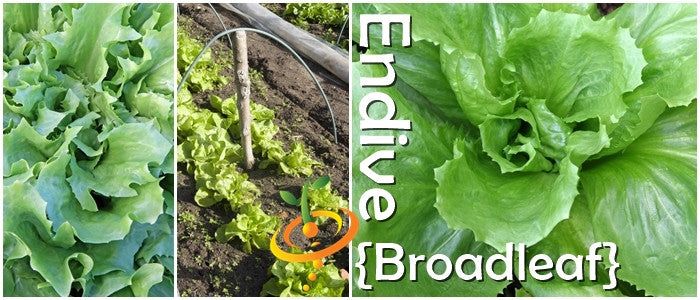
- Endive is a leafy vegetable belonging to the daisy family
- Endive can be cooked or used raw in salads
- Rich in many vitamins and minerals, especially in folate and vitamins A and K, and is high in fiber
- Days to Maturity | 50-60 days
- Endive is a leafy vegetable belonging to the daisy family
Endive - Broadleaf, Full Heart Batavian
From $299 USDUnit price /UnavailableDescription

-
This plant produces excellent yields of dark green curly leaves with large tender crisp ribs
- An excellent choice for salads greens
- Endive is rich in many vitamins and minerals, especially in folate and vitamins A and K, and is high in fiber
- Days to Maturity | 80-90 days
-
This plant produces excellent yields of dark green curly leaves with large tender crisp ribs
- From $299 USDUnit price /Unavailable
Description

- Endive is a healthy and delicious leafy green. The Green Curled Endive plant produces dark green curly leaves with large tender crisp ribs
- Excellent salads and sandwiches
- Also boiled or steamed
- Extremely easy to grow
- Endive is rich in many vitamins and minerals, especially in folate and vitamins A and K, and is high in fiber
- Days to Maturity | 90 days
- Endive is a healthy and delicious leafy green. The Green Curled Endive plant produces dark green curly leaves with large tender crisp ribs
- From $299 USDUnit price /Unavailable
Description
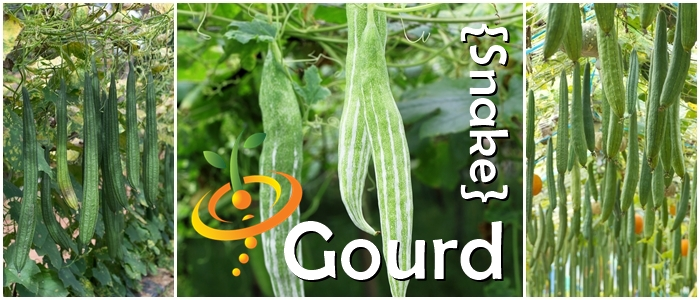
- Also known as "Slippery Snake"
- Grows long light green snake-like shaped gourds
- Grows as a long vine
- If you like to grow gourds then you'll be sure to appreciate this one
- Also known as "Slippery Snake"
- From $299 USDUnit price /Unavailable
Description

- The leaves of the Horehound plant are widely used to flavor juices and teas. Horehound is used to make hard lozenge candies that are considered by folk medicine to aid digestion, soothe sore throats, and relieve inflammation.
- Easy to grow from seed and can be sowed directly in the garden
- Plant in a sunny location with well-drainage
-
Days to Maturity | 75 days
See Horehound Recipes & Growing Tips on our Pinterest Board
Follow SeedsNow.com's board Horehound on Pinterest. - The leaves of the Horehound plant are widely used to flavor juices and teas. Horehound is used to make hard lozenge candies that are considered by folk medicine to aid digestion, soothe sore throats, and relieve inflammation.
- From $299 USDUnit price /Unavailable
Description
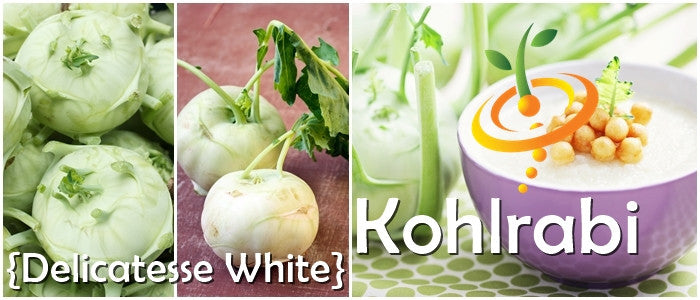
- This Kohlrabi variety produces extremely tender round bulbs
- Kohlrabi looks like a turnip growing above-ground
- Best to harvest when bulbs reach 4" across
- Well known for uniform size and disease resistance
-
Days to Maturity | 55-60 days
-
Kohlrabi Seeds | Grow Kohlrabi in loose, average soil. Direct-sow your seeds 4 to 6 weeks before the last frost in your growing zone; about ¼ inch deep, and 10 seeds per foot.
Click here for complete Kohlrabi grow guide
Additional Detail
Kohlrabi is one of the most commonly eaten vegetables in Kashmir Locally called monj, the vegetable is eaten along with the leaves (haakh). A Kashmiri household may have this on their dinner or lunch plates three to four times a week.
- This Kohlrabi variety produces extremely tender round bulbs
- From $299 USDUnit price /Unavailable
Description

- Bulb is pale green with tender, white, crisp flesh
- Kohlrabi looks like a turnip growing above-ground
- Eat when bulbs are 2 inches in diameter
-
Days to Maturity | 65 days
-
Kohlrabi Seeds | Grow Kohlrabi in loose, average soil. Direct-sow your seeds 4 to 6 weeks before the last frost in your growing zone; about ¼ inch deep, and 10 seeds per foot.
Click here for complete Kohlrabi grow guide
Additional Details
Kohlrabi is one of the most commonly eaten vegetables in Kashmir Locally called monj, the vegetable is eaten along with the leaves (haakh). A Kashmiri household may have this on their dinner or lunch plates three to four times a week.
- Bulb is pale green with tender, white, crisp flesh
- From $299 USDUnit price /Unavailable
Description

-
Produces excellent yields of 18" long yellow melons.
- The orange flesh is extremely tender and juicy
- Has a banana flavor
-
Days to Maturity | 90 days
-
Melon Seeds | Because of the long growing season, start plants indoors 4 to 5 weeks before outdoor planting time. Direct sow 4-5 seeds in a hill and then thin to the appropriate spacing.
Click here for complete Melon grow guide
-
Produces excellent yields of 18" long yellow melons.
Onion - Crimson Forest (Bunching)
From $299 USDUnit price /UnavailableDescription

-
Crimson Forest is a rare heirloom
- Dark red, burgundy, and purple colors
- Excellent for many culinary creations
- Grows well in containers and small spaces
- Easy to grow
-
Days to Maturity | 60 days
Onion Seeds | Onions are easy to grow, have a fairly short growing period and take up little space in the garden. Plant onions 1/4 inch deep and 3 to 4 inches apart in double rows, leaving 6 to 10 inches between rows.
Click here for complete Onion grow guide
-
Crimson Forest is a rare heirloom
Onion - Lisbon, White (Bunching)
From $299 USDUnit price /UnavailableDescription

-
White Lisbon is a very popular type of bunching onion
- Dark green leaves with long white stalks
- Stores well after harvest
- Excellent for many culinary creations
- A hot and cold resistant variety
- This variety is usually planted in the spring but it's also a great fall/winter crop as well
- Grows well in containers and small spaces
- Easy to grow
-
Days to Maturity | 65 days
Onion Seeds | Onions are easy to grow, have a fairly short growing period and take up little space in the garden. Plant onions 1/4 inch deep and 3 to 4 inches apart in double rows, leaving 6 to 10 inches between rows.
Click here for complete Onion grow guide
-
White Lisbon is a very popular type of bunching onion
- From $299 USDUnit price /Unavailable
Description

- Compact, 18 to 20 inch plant requires staking and should utilize a trellis
- Fine, sweet flavor when picked young
- Pods are 3 inches with 5 or 6 peas
- Easy to grow
- Days to Maturity | 60 days
- Peas are a cool season vegetable, and do best in a climate where there are two months of cool growing weather, either spring planting in the northern regions or fall planting in the warmer, southern regions. Plant seeds 4"-6" apart.
Click here for complete Pea grow guide
Additional DetailsPeas are high in vitamin A, vitamin C, B vitamins and lutein. Dry weight is about one-quarter protein and one-quarter sugar.
- From $299 USDUnit price /Unavailable
Description

- This variety has unusually large, thick pods that grow up to 5" long
- Medium green, flat pods are very tender and have a mild, sweet flavor that holds well into the season
- Vines grow 30-36 inches tall and are heavy producers making this variety one of the best producing snow peas available
- Shows resistance to common wilt, mosaic virus, and powdery mildew
-
Days to Maturity | 70 days
Peas are a cool season vegetable, and do best in a climate where there are two months of cool growing weather, either spring planting in the northern regions or fall planting in the warmer, southern regions. Plant seeds 4"-6" apart.
Click here for complete Pea grow guide
Additional Details
Peas are high in vitamin A, vitamin C, B vitamins and lutein. Dry weight is about one-quarter protein and one-quarter sugar.
- This variety has unusually large, thick pods that grow up to 5" long
- From $299 USDUnit price /Unavailable
Description

- The snap pea may be planted in spring as early as the soil can be worked
- Tolerates light frost when young
- High tolerance of hot temperatures
- Grow as a vine and requires a trellis or anything else the can climb along
-
Days to Maturity | 60 days
Pea Seeds | Peas are a cool season vegetable, and do best in a climate where there are two months of cool growing weather, either spring planting in the northern regions or fall planting in the warmer, southern regions. Plant seeds 4"-6" apart.
Click here for complete Pea grow guide
Additional DetailsPeas are high in vitamin A, vitamin C, B vitamins and lutein. Dry weight is about one-quarter protein and one-quarter sugar.
Follow SeedsNow.com's board Peas on Pinterest. - The snap pea may be planted in spring as early as the soil can be worked
- From $299 USDUnit price /Unavailable
Description

- The most productive pea variety suitable for warm weather
- Wando peas also tolerates the cold extremely well for early sowing
- Bush variety
-
Days to Maturity | 65 days
Pea Seeds | Peas are a cool season vegetable, and do best in a climate where there are two months of cool growing weather, either spring planting in the northern regions or fall planting in the warmer, southern regions. Plant seeds 4"-6" apart.
Click here for complete Pea grow guide
Additional DetailsPeas are high in vitamin A, vitamin C, B vitamins and lutein. Dry weight is about one-quarter protein and one-quarter sugar.
- The most productive pea variety suitable for warm weather
- From $299 USDUnit price /Unavailable
Description

The Pepperoncini Pepper was likely your first taste of a foreign word at a deli, subway shop, or pizza joint. Those bright yellow pickled rings added a smidge of sour and a surprise of spice. You weren’t sure you liked them at first, but kept eating them, and learned to pronounce it: pepper-on-CHI-ni. Bring back the memories with this prolific plant that produces bunchini 3"-5" fruits that are tangy and crunchini when yellowish-green, becoming softer and sweeter as they ripen to red. Pickle these sweet, mild peppers in the old way, or toss fresh with a bowl of fettucini, porcini, and pecorini.
- Very high yields
- Tangy, sweet, and crunchy
- Early producer
- Harvest any color
SEED PLANTING TIPS
- Botanical name: Capsicum annuum
- Pepper length: 3"-5"
- Scoville heat units (SHU): 100-500/mild
- Plant support: Tomato cage or stake
- Depth to plant seeds: .25" deep
- Spacing between plants: 18"-24" apart
- Spacing between rows: 24"-36" apart
- Days to germinate (sprout): 7-21 days
- Germination soil temps: 75F-85F
- Soil needs: 6.0-7.0 pH
- Sun needs: Full sun
- Frost hardy: No
- Planting season: Spring, summer
- # of plants per sq. ft.: Appx. 1 plant per sq. ft.
- Days to maturity: 65-75 days
Good companion plants: Basil, Carrot, Cucumber, Eggplant, Okra, Rosemary, Sage, Squash, Tomato
-
The Italian Pepperoncini pepper is one of the oldest Italian heirloom varieties that's still widely popular around the world. 3-5" pepper with low-medium heat.
-
Bushy and small plants will produce a large amount of peppers.
-
The peppers are yellow and then turn to red as the sweet flavor intensifies.
-
Excellent when pickled or eaten raw in salads or sandwiches.
All Peppers ⟐ Hot Peppers 📚 Hot Peppers Grow Guide - From $299 USDUnit price /Unavailable
Description
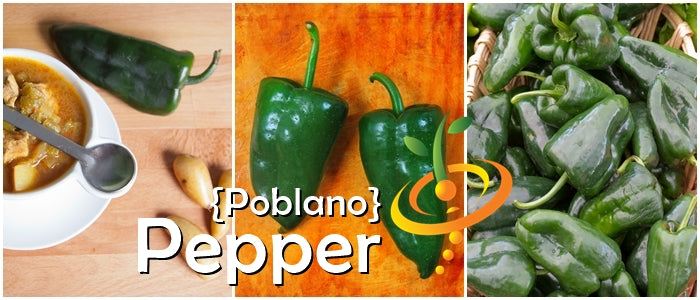
If you’re looking for the Chile Relleno pepper, you’ve found it. Except it goes by the name of Poblano. Prolific plants put out muchos 4"-8" thick-skinned, tapered fruits that start out a deep dark green with mild heat and earthy flavor. That’s when this pepper (chile) is most often roasted, peeled, and stuffed full (relleno) of meat and cheese. Let it ripen on the vine and the color changes to a deep dark brownish-red that’s much spicier. Or dry it, and you’ll have an Ancho pepper to flake or powder. This one will keep your oven busy all summer long.- Very high yields
- Earthy flavor
- Early producer
- Good for containers
SEED PLANTING TIPS
- Botanical name: Capsicum annuum
- Pepper length: 4"-8"
- Scoville heat units (SHU): 500-2,000/mild
- Plant support: Tomato cage or stake
- Depth to plant seeds: .25" deep
- Spacing between plants: 18"-24" apart
- Spacing between rows: 24"-36" apart
- Days to germinate (sprout): 7-21 days
- Germination soil temps: 75F-85F
- Soil needs: 6.0-7.0 pH
- Sun needs: Full sun
- Frost hardy: No
- Planting season: Spring, summer
- # of plants per sq. ft.: Appx. 1 plant per sq. ft.
- Days to maturity: 65-85 days
Good companion plants: Basil, Carrot, Cucumber, Eggplant, Okra, Rosemary, Sage, Squash, Tomato
All Peppers ⟐ Hot Peppers 📚 Hot Peppers Grow Guide - From $299 USDUnit price /Unavailable
Description
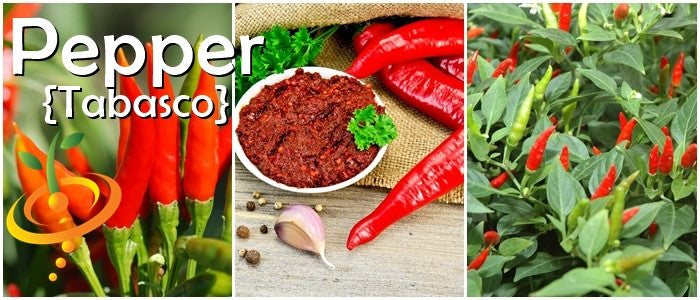
The Tabasco Pepper does not grow in a bottle, nor does it taste like salty vinegar. That’s something they came up with in Louisiana. It’s just a regular hard-working Joe that shows up even on the hottest days, pumping out 1"-2" peppers with tapered tips that point upward, ripening from green to yellow to orange to that famous hot sauce red. Heat tolerant and hardy enough to overwinter in warmer grow zones. With a spiciness similar to a Cayenne Pepper, it adds a distinct, smoky jolt to eggs, chili, stir fry, or salsa.
- High yields
- Heat tolerant
- Harvest any color
- Good for containers
SEED PLANTING TIPS
- Botanical name: Capsicum frutescens
- Pepper length: 1"-2"
- Scoville heat units (SHU): 30,000-50,000/hot
- Plant support: Tomato cage or stake
- Depth to plant seeds: .25" deep
- Spacing between plants: 18"-24" apart
- Spacing between rows: 24"-36" apart
- Days to germinate (sprout): 7-21 days
- Germination soil temps: 75F-85F
- Soil needs: 6.0-7.0 pH
- Sun needs: Full sun
- Frost hardy: No
- Planting season: Spring, summer
- # of plants per sq. ft.: Appx. 1 plant per sq. ft.
- Days to maturity: 80-90 days
All Peppers ⟐ Hot Peppers 📚 Hot Peppers Grow Guide All Peppers ⟐ Hot Peppers 📚 Hot Peppers Grow Guide - From $299 USDUnit price /Unavailable
Description
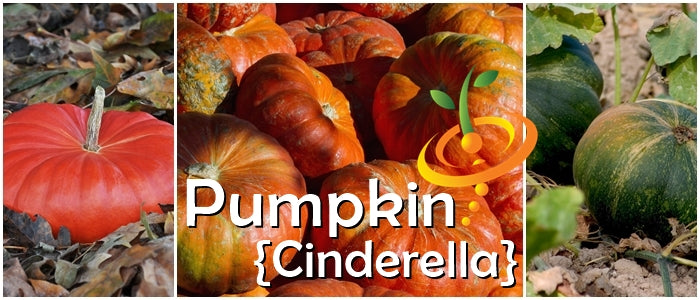
- The Cinderella is an old heirloom from France - looks just like the coach in the Cinderella fairy tale
- Plant produces medium-sized 25 lb. red/orange pumpkins
- This pumpkin has delicious flesh
- Days to Maturity | 100-110 days
Additional DetailsThe word pumpkin originates from the word pepon, which is Greek for “large melon". The French adapted this word to pompon, which the British changed to pumpion and later American colonists changed that to the word we use today, "pumpkin".
- The Cinderella is an old heirloom from France - looks just like the coach in the Cinderella fairy tale
- From $299 USDUnit price /Unavailable
Description

- Cucurbita pepo. Plant produces tiny 4" wide orange pumpkins
-
Very attractive and great for Halloween and Thanksgiving decorations
-
Days to Maturity | 100 days
Additional DetailsThe word pumpkin originates from the word pepon, which is Greek for “large melon". The French adapted this word to pompon, which the British changed to pumpion and later American colonists changed that to the word we use today, "pumpkin".
- From $299 USDUnit price /Unavailable
Description

- The Jack ‘O Lantern is a popular pumpkin variety that produces 10 pound fruits that are thick walled, and smooth skinned, round to slightly oblong
- The thick flesh is good for cooking, but really shines as a carving pumpkin. Has nice strong stems
- Days to Maturity | 110 days
Additional DetailsThe word pumpkin originates from the word pepon, which is Greek for “large melon". The French adapted this word to pompon, which the British changed to pumpion and later American colonists changed that to the word we use today, "pumpkin".
- From $299 USDUnit price /Unavailable
Description

- The Yellow Paris is a very large pumpkin
- An old heirloom variety from France
- Days to Maturity | 100 days
Additional DetailsThe word pumpkin originates from the word pepon, which is Greek for “large melon". The French adapted this word to pompon, which the British changed to pumpion and later American colonists changed that to the word we use today, "pumpkin".
- The Yellow Paris is a very large pumpkin
- From $299 USDUnit price /Unavailable
Description

-
Raphanus sativus. Plant produces flavorful white round radishes
- Radishes have a mild taste
- Easy to grow and only less than a month to grow
- Crisp and tender
- Excellent for salads and other culinary creations
-
Days to Maturity | 30 days
Additional DetailsRadishes are rich in ascorbic acid, folic acid, and potassium. They are a good source of vitamin B6, riboflavin, magnesium, copper, and calcium. One cup of sliced red radish bulbs provides approximately 20 calories, largely from carbohydrates
Follow SeedsNow.com's board Radishes on Pinterest. -
Raphanus sativus. Plant produces flavorful white round radishes
- From $299 USDUnit price /Unavailable
Description

- Produces deep purple radishes with a white flesh
- Looks incredible! Great for culinary dishes
- The white flesh is sweet and mild in flavor
- Great for selling at farmers markets
- Unique and rare heirloom radish
- Grows well in containers and small spaces
-
Days to Maturity | 25-30 days
Additional Details
Radishes are rich in ascorbic acid, folic acid, and potassium. They are a good source of vitamin B6, riboflavin, magnesium, copper, and calcium. One cup of sliced red radish bulbs provides approximately 20 calories, largely from carbohydrates
Follow SeedsNow.com's board Radishes on Pinterest. - Produces deep purple radishes with a white flesh
Rutabaga - American Purple Top
From $299 USDUnit price /UnavailableDescription

- Recommended by USU. Large 5 to 6 inch roots are purple and yellow colored, nearly round. Flesh is yellow, mild and fine grained.
How to Grow Organic Rutabaga from Seed
- Days to Maturity | 90 days
- Recommended by USU. Large 5 to 6 inch roots are purple and yellow colored, nearly round. Flesh is yellow, mild and fine grained.
- From $299 USDUnit price /Unavailable
Description
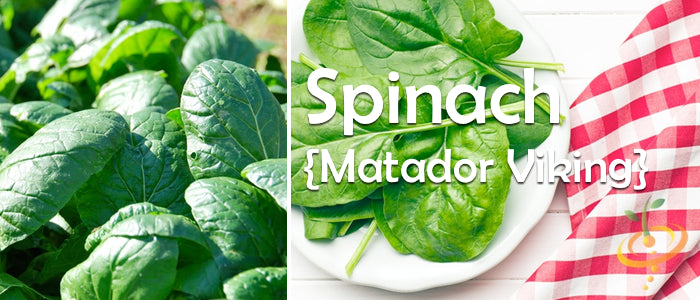
- Matador Viking Spinach will produce beautiful large and smooth dark green spinach leaves in only 45 days
- Excellent flavor
- Full of nutrients
- Extremely easy to grow
- Grows best during the cooler months
- Grows really well in containers and other small spaces
-
How to Grow | Spinach is very hardy and can tolerate cold — in fact, it thrives in cold weather. Spinach grows really well during winter months in the South. Spinach also grows well in early spring and late summer in the North. These seeds should be planted about four weeks before your area's average date of last frost.
-
Days to Maturity | 45 days
- Matador Viking Spinach will produce beautiful large and smooth dark green spinach leaves in only 45 days
- From $299 USDUnit price /Unavailable
Description

- The Noble Giant spinach is heavy, glossy, dark green plant with leaves that are heavily savoyed and crumpled
- Extremely delicious and one of the most popular spinach varieties you can grow in your garden
- Very easy to grow
-
How to Grow | Spinach is very hardy and can tolerate cold — in fact, it thrives in cold weather. Spinach grows really well during winter months in the South. Spinach also grows well in early spring and late summer in the North. These seeds should be planted about four weeks before your area's average date of last frost.
- Days to Maturity | 45 days
- The Noble Giant spinach is heavy, glossy, dark green plant with leaves that are heavily savoyed and crumpled
- From $299 USDUnit price /Unavailable
Description

- These Winter Giant spinach seeds will produce very flavorful large green spinach leaves
- Known for growing to a height of appx. 2 feet
- Days to Maturity | 45 days
Sprouts/Microgreens - Basil, Green
From $299 USDUnit price /UnavailableDescription

- Basil sprouts are extremely easy to grow!
- Ready to eat in as little as a week.
- Great addition to many culinary creations.
- Excellent flavor and fragrance.
Sprouts/Microgreens - Basil, Purple
From $299 USDUnit price /UnavailableDescription

- Basil sprouts are extremely easy to grow!
- Ready to eat in as little as a week.
- Great addition to many culinary creations.
- Excellent flavor and fragrance.
You may also be interested in: Green Basil Sprouts & Micro-Greens
Squash (Winter) - Hubbard, Blue
From $299 USDUnit price /UnavailableDescription

-
The Baby Blue Hubbard squash is popular 7 lb light blue/gray squash
- Grows as a vine (not as a bush)
- Orange/yellow colored flesh
- Very sweet and full of flavor - perfect for roasting or baking
- Ideal for any sized garden and easy to grow
- Days to Maturity | 100 days
Additional DetailsThough considered a vegetable in cooking, botanically speaking, squash is a fruit (being the receptacle for the plant's seeds). Squash can be served fresh (in salads) and cooked (squash stuffed with meat, fried squash, baked squash).
-
The Baby Blue Hubbard squash is popular 7 lb light blue/gray squash
Squash (Winter) - Hubbard, Golden
From $299 USDUnit price /UnavailableDescription
 Squash (Winter), Hubbard Golden (100% Heirloom/Non-Hybrid/Non-GMO)
Squash (Winter), Hubbard Golden (100% Heirloom/Non-Hybrid/Non-GMO)-
The Golden Hubbard squash is popular 10 lb orange squash with tan stripes.
- Grows as a vine (not as a bush)
- Golden colored flesh
- Very sweet and full of flavor - perfect for pies and canning
- Ideal for any sized garden and easy to grow - Day to Maturity | 100 days
- Best Months to Plant | [March - June] Winter squash love the sun and can't get enough of it. They need about 3 months of warm temperature and one additional month of cooler temps to fully mature.



Additional DetailsThough considered a vegetable in cooking, botanically speaking, squash is a fruit (being the receptacle for the plant's seeds). Squash can be served fresh (in salads) and cooked (squash stuffed with meat, fried squash, baked squash).
-
The Golden Hubbard squash is popular 10 lb orange squash with tan stripes.
- From $299 USDUnit price /Unavailable
Description

- These tomatillo seeds will produce delicious 3-5 ounce fruits.
- Tomatillo is popularly used to make salsas.
- Days to Maturity | 85 days
- These tomatillo seeds will produce delicious 3-5 ounce fruits.

🌱 Featured Seed Types (A - Z)
View allcontinue shopping























